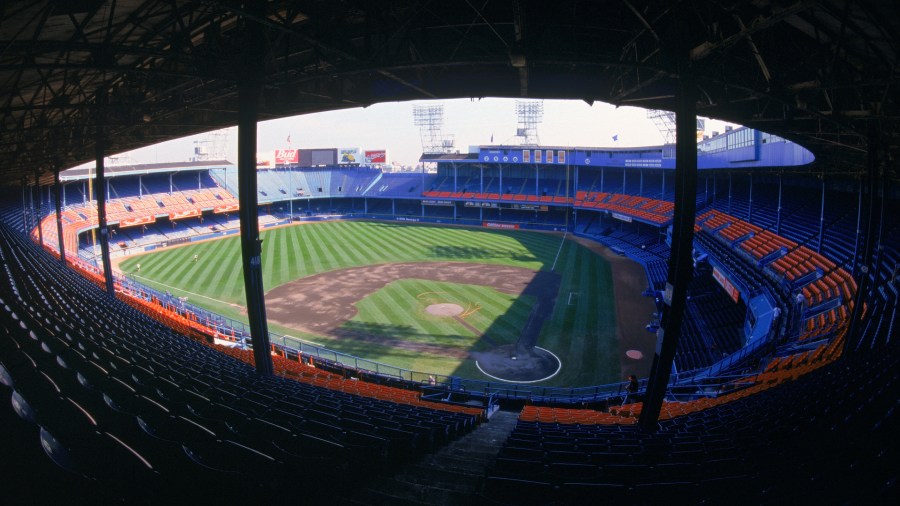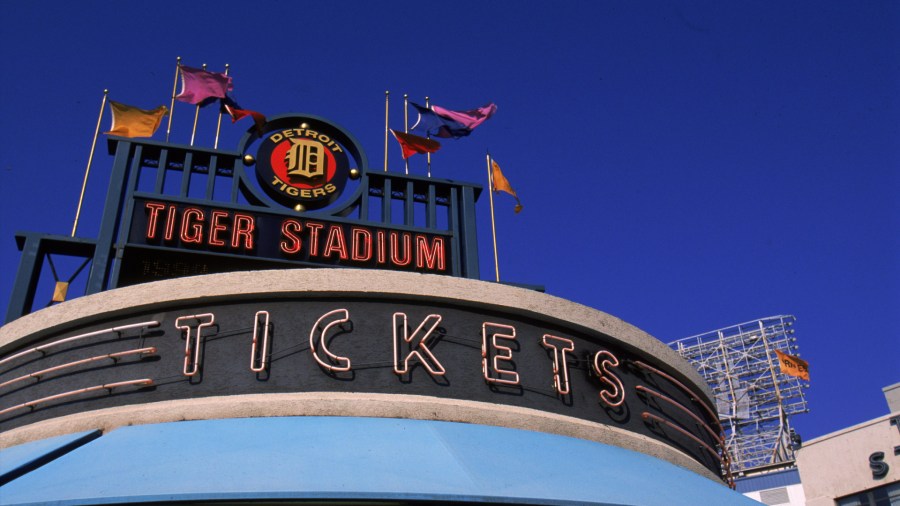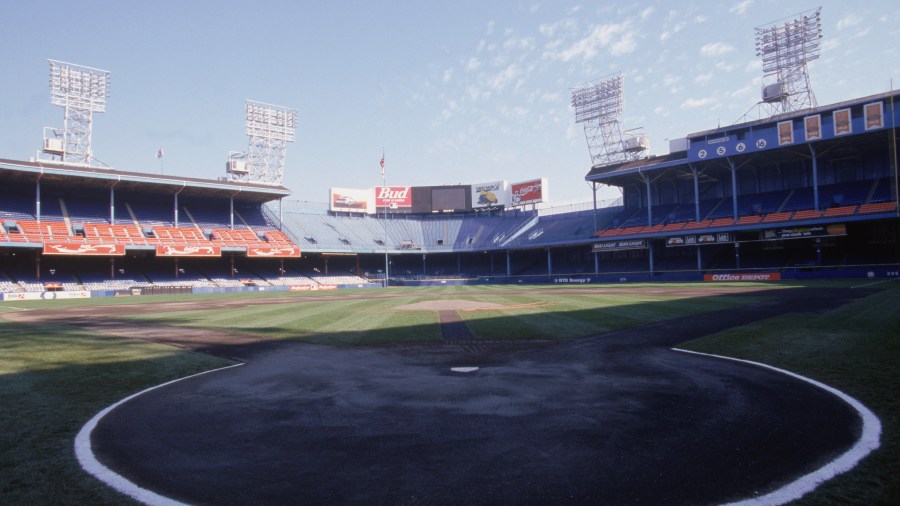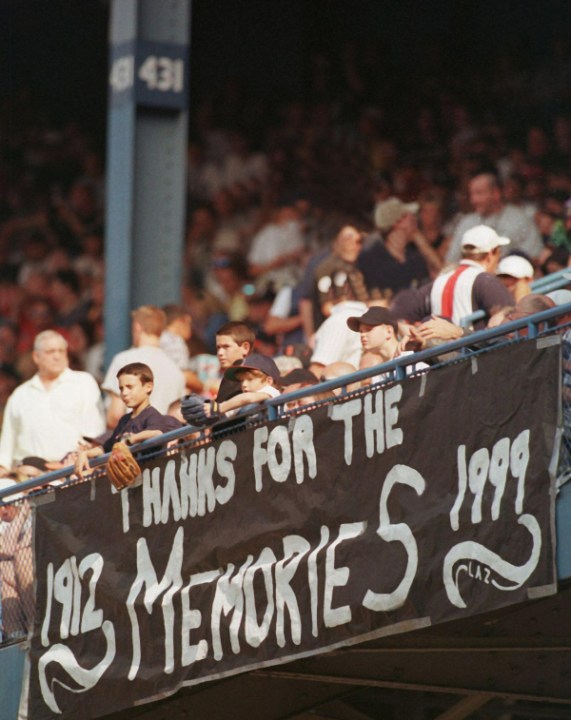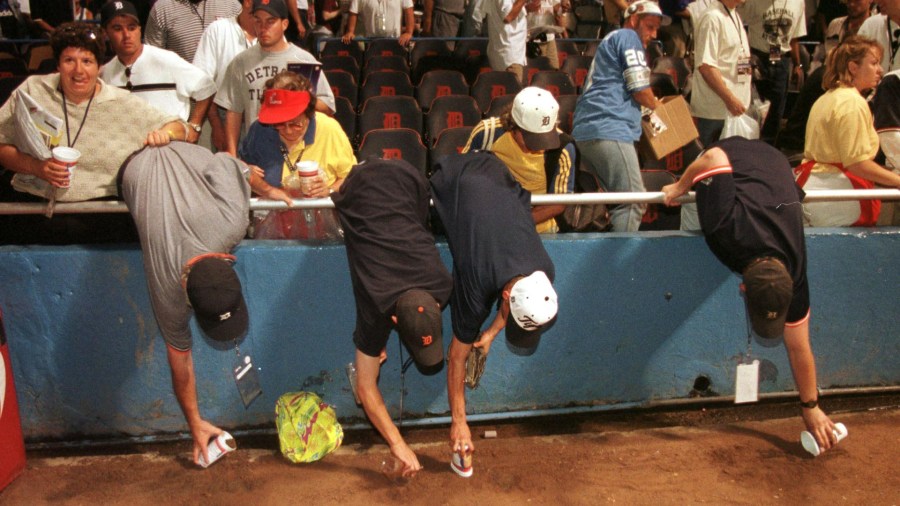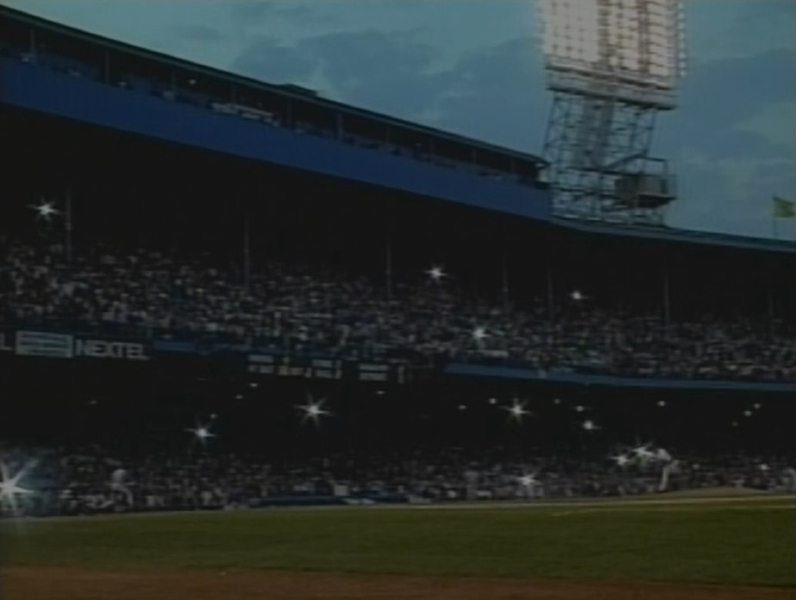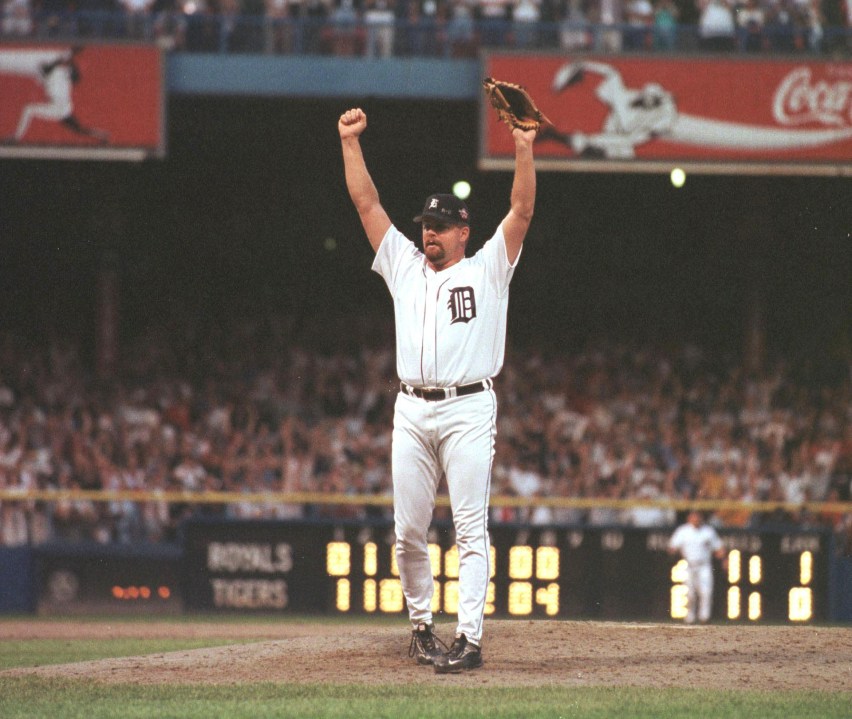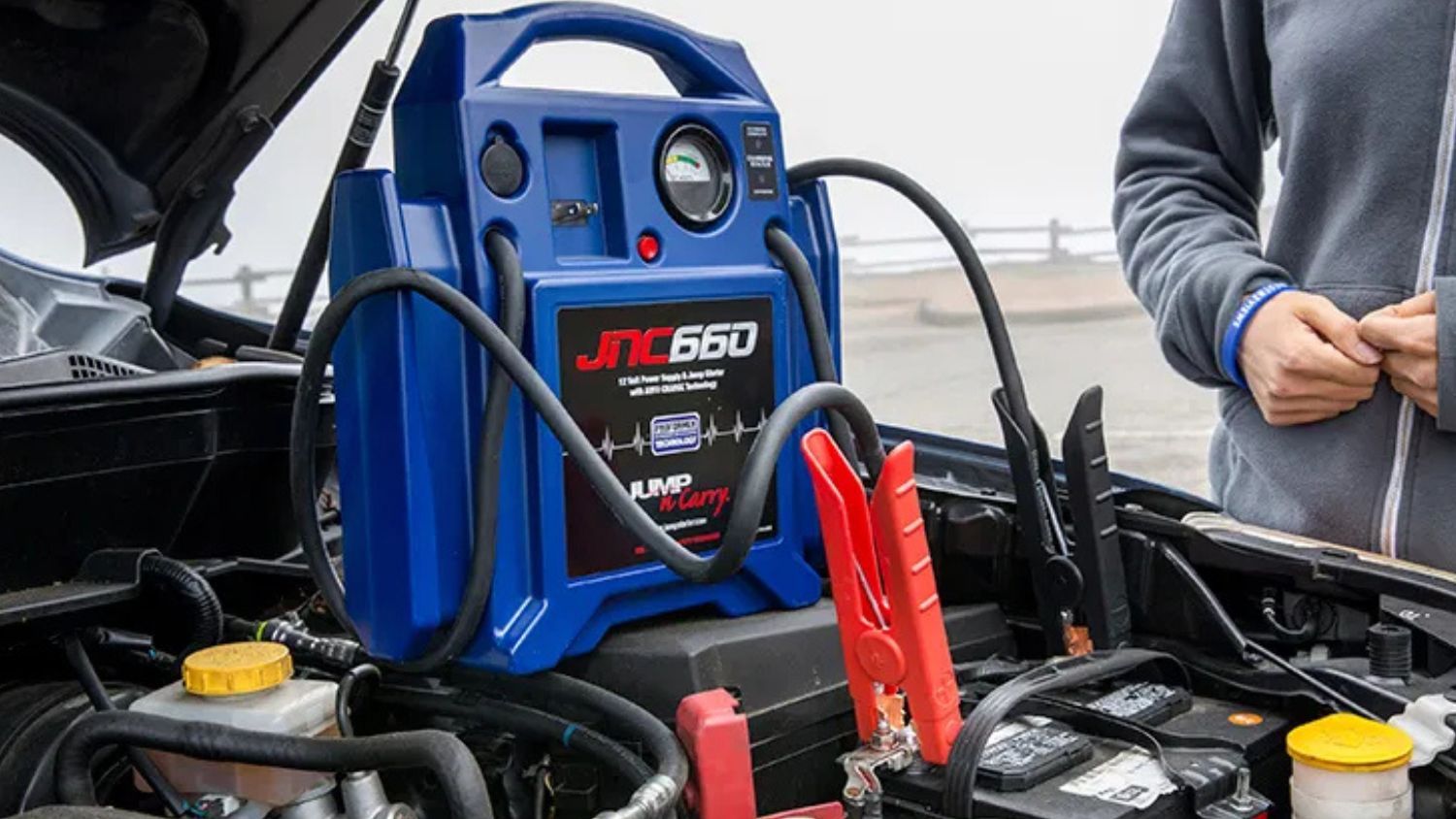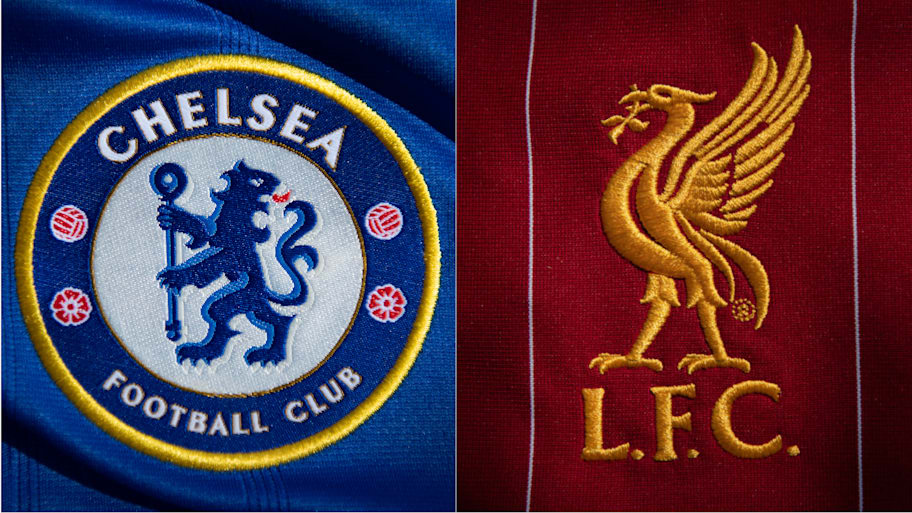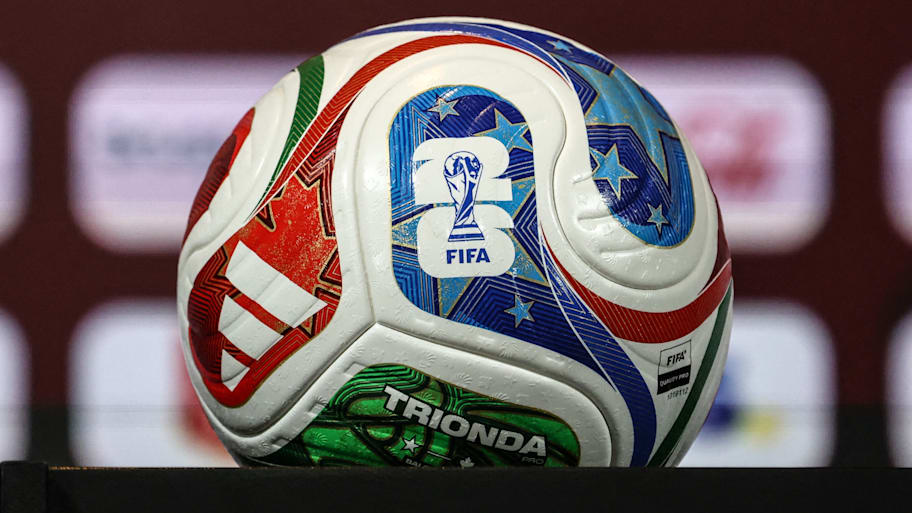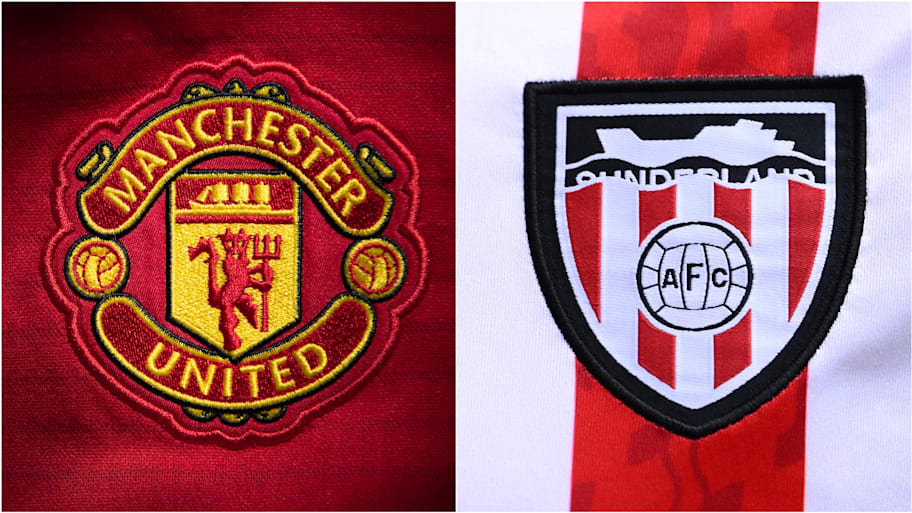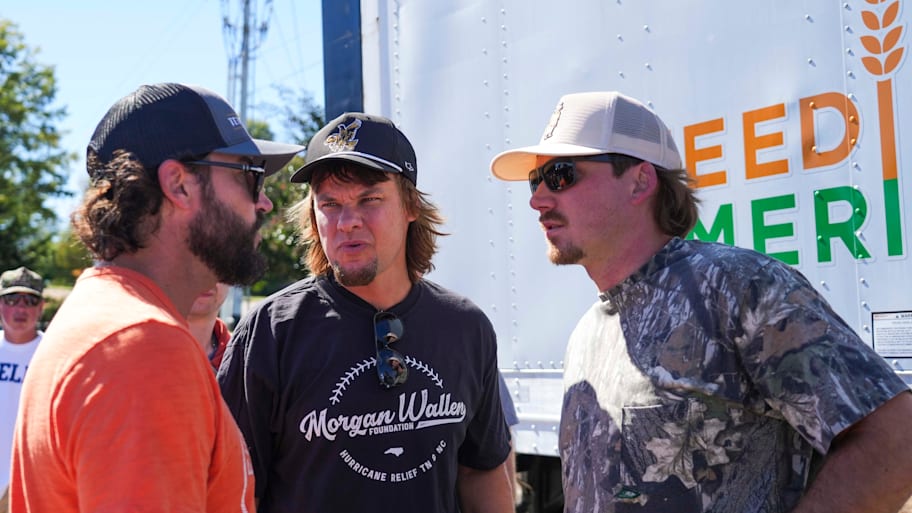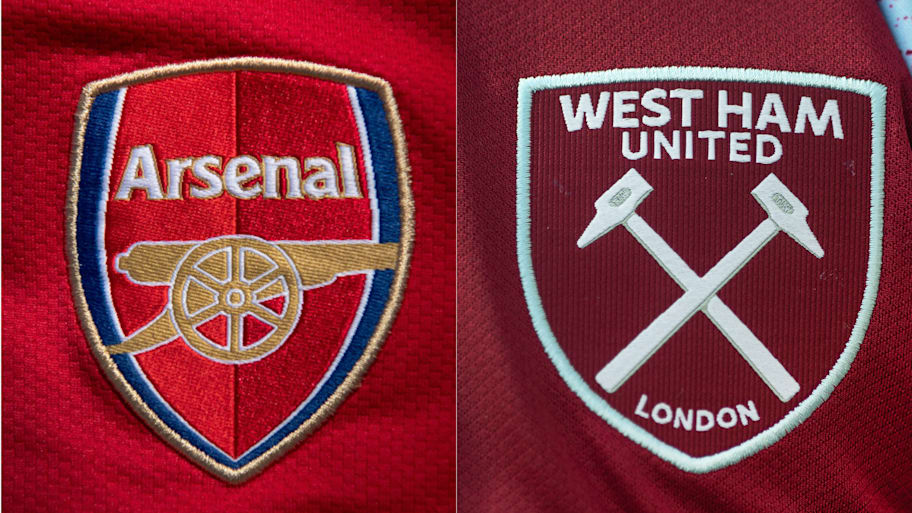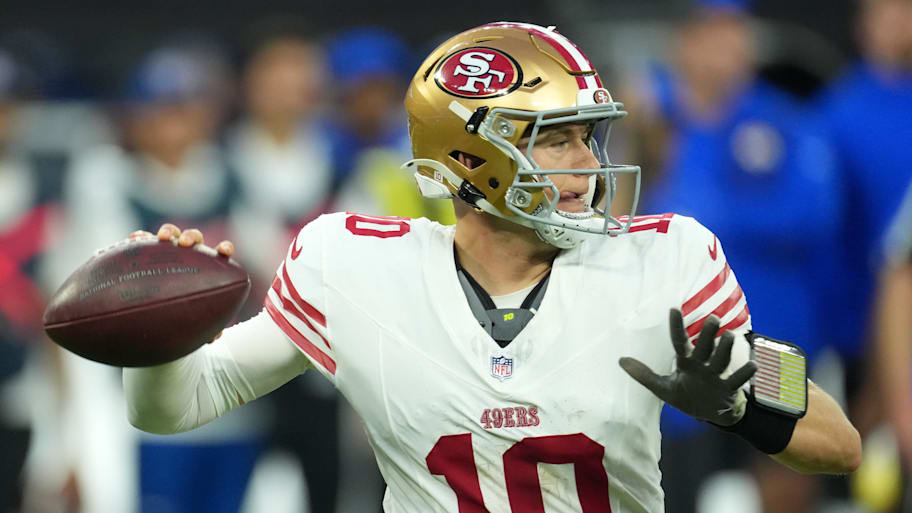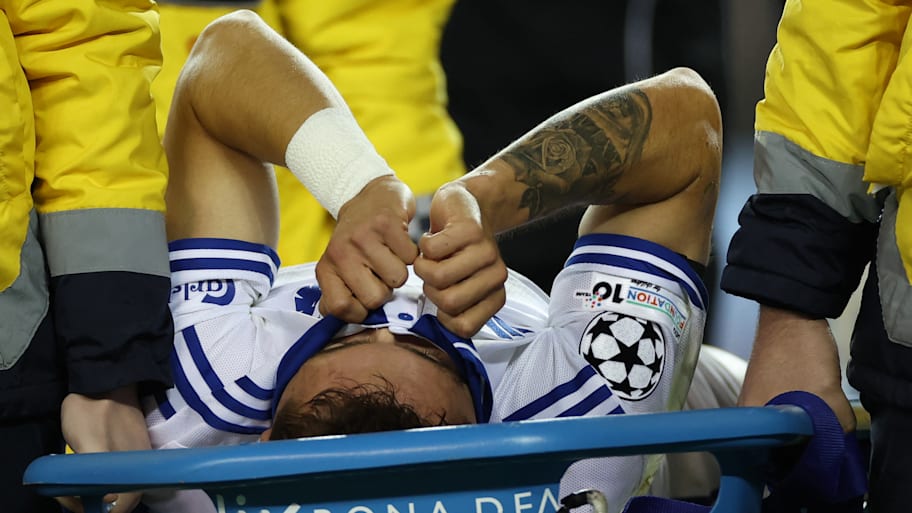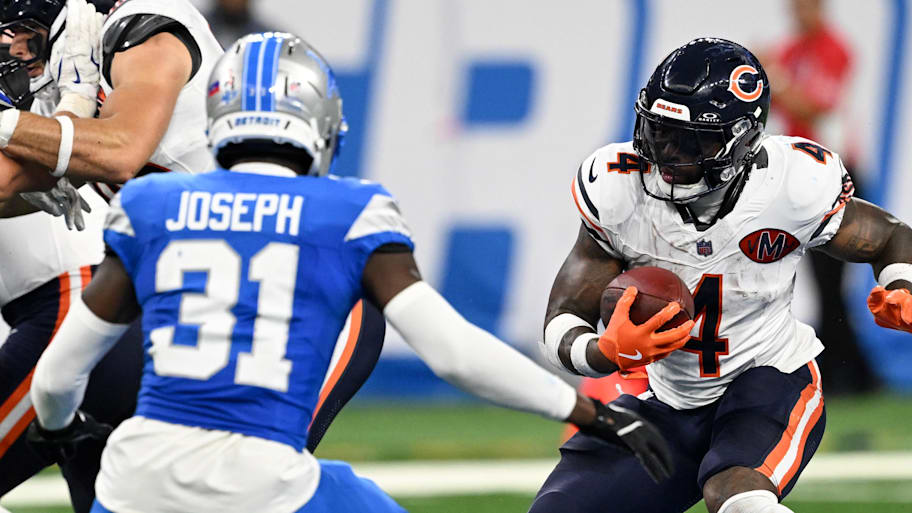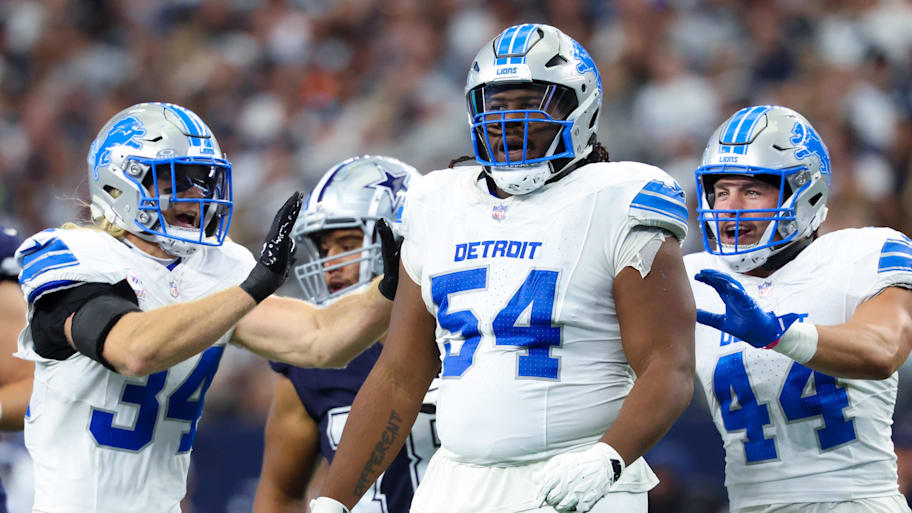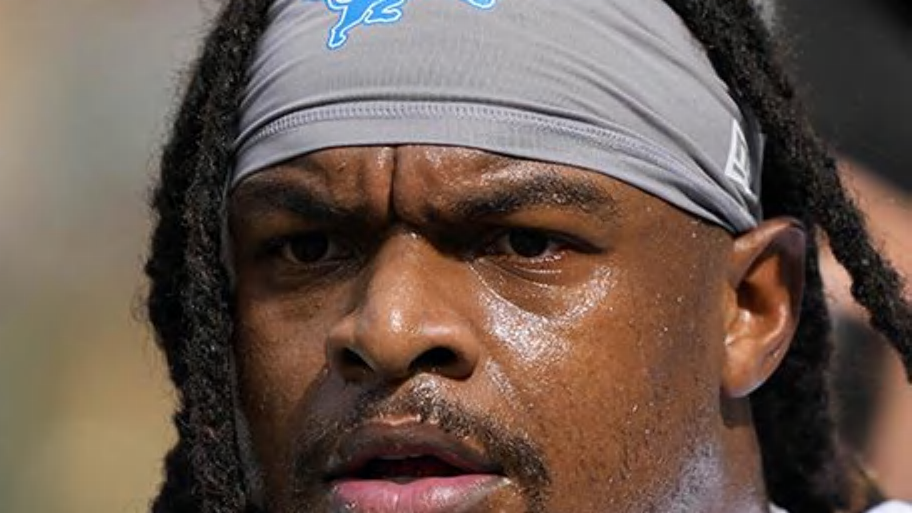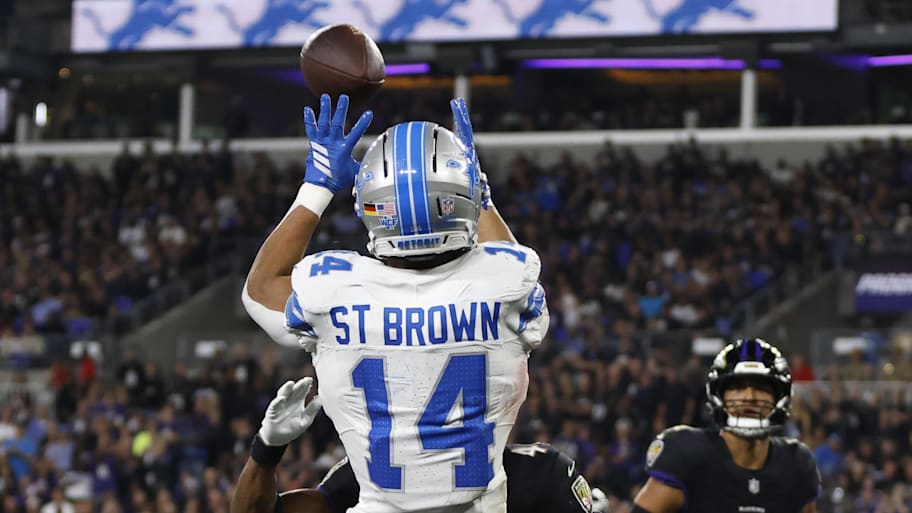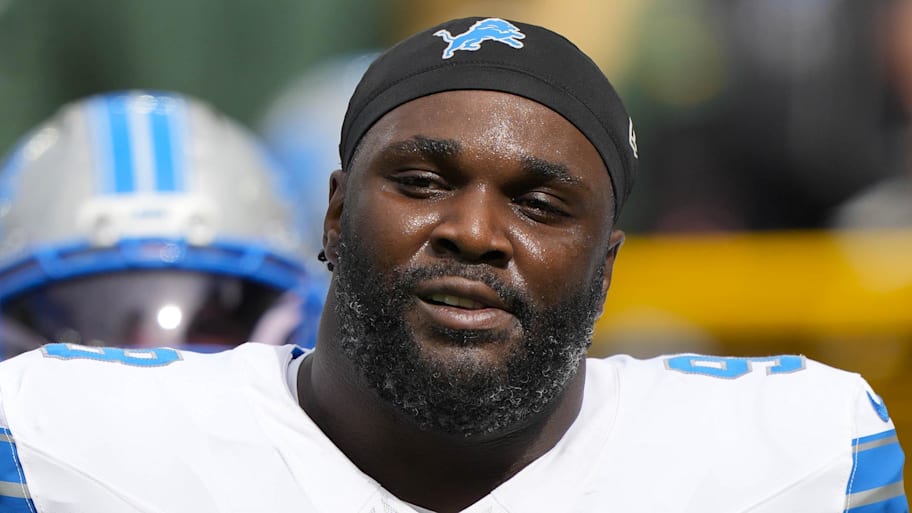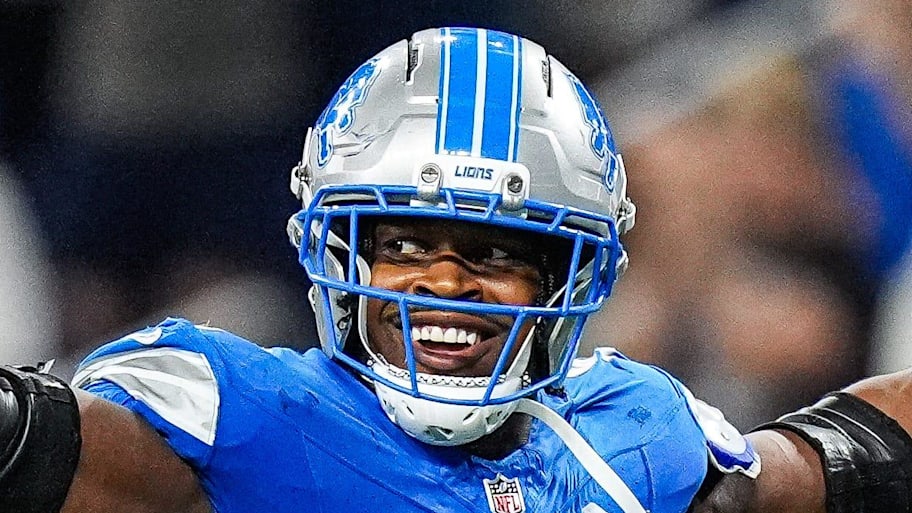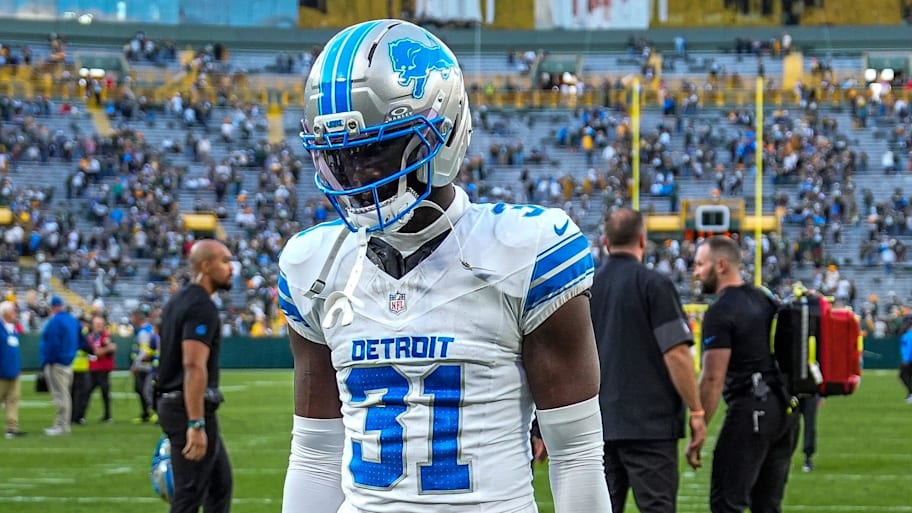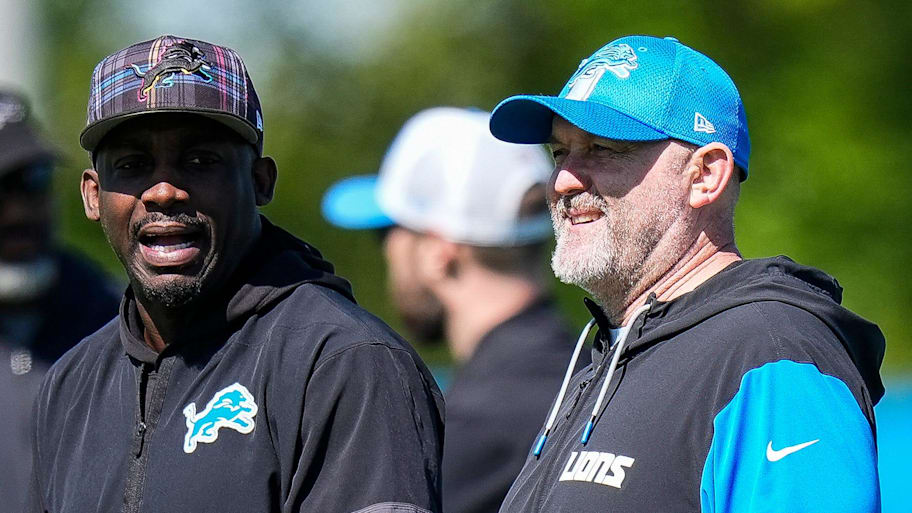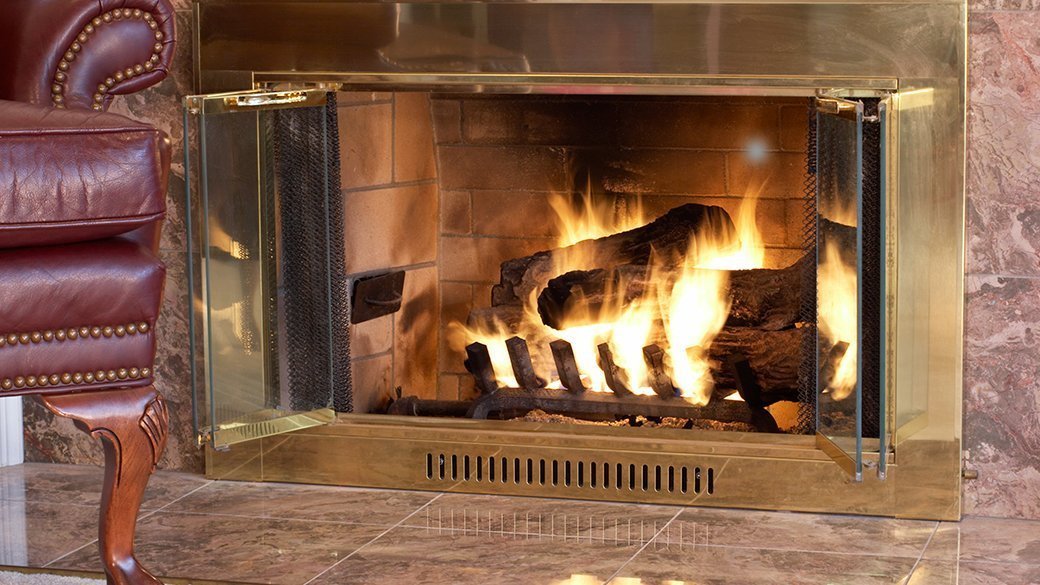GRAND RAPIDS, Mich. (WOOD) — This week marks the 25th anniversary of the end of an era. On Sept. 27, 1999, the Detroit Tigers played their final game at Tiger Stadium, ending the structure’s 88-year run at the corner of Michigan and Trumbull.
Baseball at “The Corner” dates back more than a century. It was first established as the team’s home in 1896 when it was set up as Bennett Park. Former owner Frank Navin took over the team in 1911 and made the ballpark one of his top priorities.
A steel-and-concrete ballpark was built and dubbed Navin Field. It debuted on April 20, 1912, with a capacity crowd of 23,000.
The ballpark underwent countless changes over the years, adding seats and new amenities along with name changes. And while it still held the magic of baseball and decades of memories, it was clear in its final years that Tiger Stadium was on its last leg.
Broadcast legend Ernie Harwell, a man with a million wise words, said it best.
“We got so used to the place, you know?” he told News 8’s Jack Doles in 1999. “It’s like an old slipper. You go home and it doesn’t look too good, maybe, but it’s comfortable and you’re used to it, and you love it.”
Al Kaline echoed the sentiments in a speech delivered in a ceremony before the ballpark’s last game.
“Tiger Stadium’s strength lies not in its dazzling architecture or creature comforts, but rather in its character, charm and history. While common materials may have been used to build this place: concrete, steel and bricks, the memories are the cement that has held it together for 88 wonderful seasons,” Kaline said.
The team used the day as an opportunity to celebrate all of those memories and the players who made them possible. All four Tigers’ World Series teams were represented, including Billy Rogell and Elden Auker from the 1935 team and Billy Pierce and Jimmy Outlaw from the 1945 squad.
There were plenty of players from the 68 and 84 teams, including stars like Kaline, Mickey Stanley, and Willie Horton, along with Kirk Gibson, Alan Trammell and Lou Whitaker. The ceremonies also brought back beloved players who fell short of a championship, including Paw Paw native Charlie Maxwell and Cecil Fielder, the last Tiger to hit 50 home runs in a season.
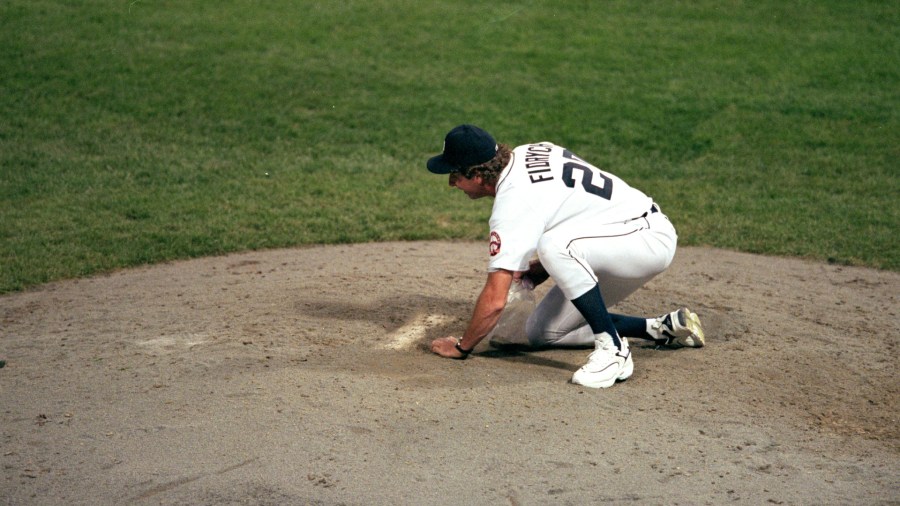
The team also took the time to honor some all-time greats. The starters wore the numbers of the Tigers legends associated with each position. Right fielder Karim Garcia sported Kaline’s No. 6. Slugging first baseman Tony Clark wore Hank Greenberg’s No. 5. Center fielder, Gabe Kapler, in a tribute to Ty Cobb, went without a number.
The game’s outcome wouldn’t mean anything in the standings; both the Tigers and opponent Kansas City were well outside of the playoff hunt. But the tension and energy in the crowd was palpable. The fans needed to send Tiger Stadium out on a high note.
Brian Moehler got the start and escaped a bases-loaded jam in the first before leadoff hitter Luis Polonia took a Jeff Suppan pitch deep to the right-center bleachers for a 1-0 lead.
Kansas City was able to scratch a couple of runs across and Robert Fick drove in Damion Easley with a sacrifice fly to make it 2-2. The score held until the sixth inning, when Garcia connected for a 2-run homer to take a 4-2 lead.
Two innings later, we got the game’s defining moment.
“(With the bases loaded, Tigers manager Lance) Parrish intended Frank Catalanotto to pinch-hit for Fick, suffering through a miserable season following shoulder surgery in March. But the 25-year-old rookie persuaded his skipper to let him bat and the result was memorable,” Gregory Wolf with the Society for American Baseball Research wrote.
The former West Michigan Whitecap blasted the first pitch he saw off the roof of the right field bleachers for a grand slam. It proved to be the final home run, the final RBI and indeed the final hit in Tiger Stadium history.
Fittingly, Fick was wearing Norm Cash’s No. 25. According to Historic Detroit, only 36 home runs had left the park since the upper deck was added in 1938. No one did it more than Cash at four times.
“Oh, would Stormin’ Norman have loved that,” TV broadcaster Frank Beckmann said as Fick crossed home plate.
After a couple of quick groundouts, Todd Jones came on for the ninth, recording two quick outs before working a young Carlos Beltran to a 2-2 count. While the flashbulbs flared with every pitch, Beltran bit on a slider and struck out. Jones threw his arms in the air before sharing a sigh of relief with his catcher, Brad Ausmus. With an 8-2 score, that mandatory victory was officially in hand.
After the game, the grounds crew dug up home plate and brought it to be installed at Comerica Park. Dozens of former Tigers took one last curtain call, acknowledging their adoring fans, culminating with Trammell and Whitaker walking out together and sharing a handshake at second base.
After the pageantry and one last look back, it was time to say goodbye. The game ended shortly after 7 p.m. According to Wolf, the scoreboard was turned off at 8:19, and by 9 p.m., the stands were empty. To quote Ernie Harwell, Tiger Stadium was “no more.”
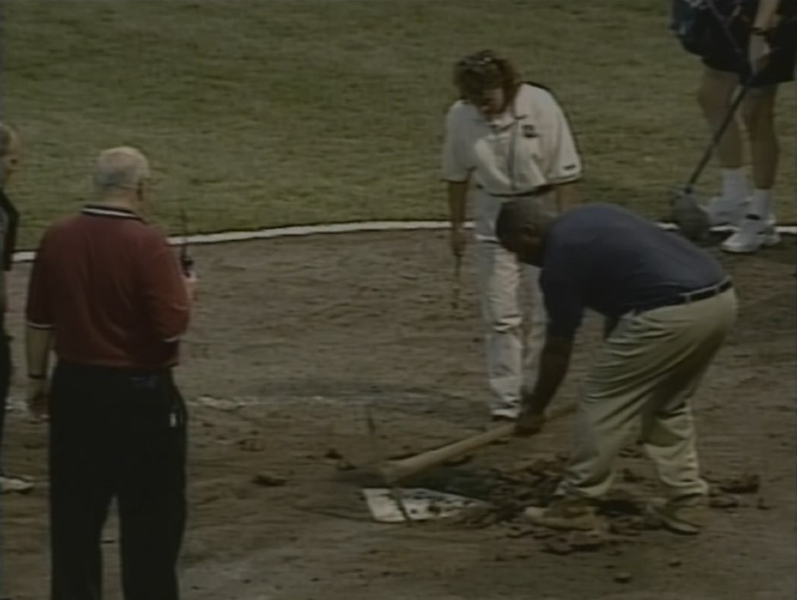
But the memories are still thriving. Videos of games and greats are littered across the Internet and basements alike. Countless “mancaves” across Michigan proudly display their souvenirs from The Corner, complete with a story or two about their favorite trip to the ballpark.
Addressing the crowd after the game, player and future Tigers manager Brad Ausmus, put the night into perspective, underscoring the magic of baseball and the hope that each new day brings.
“Tiger Stadium may be laid to rest, and we may be moving to Comerica Park. But the people, the players and the memories of Tiger Stadium will never be forgotten,” Ausmus said.
“See you next year.”
